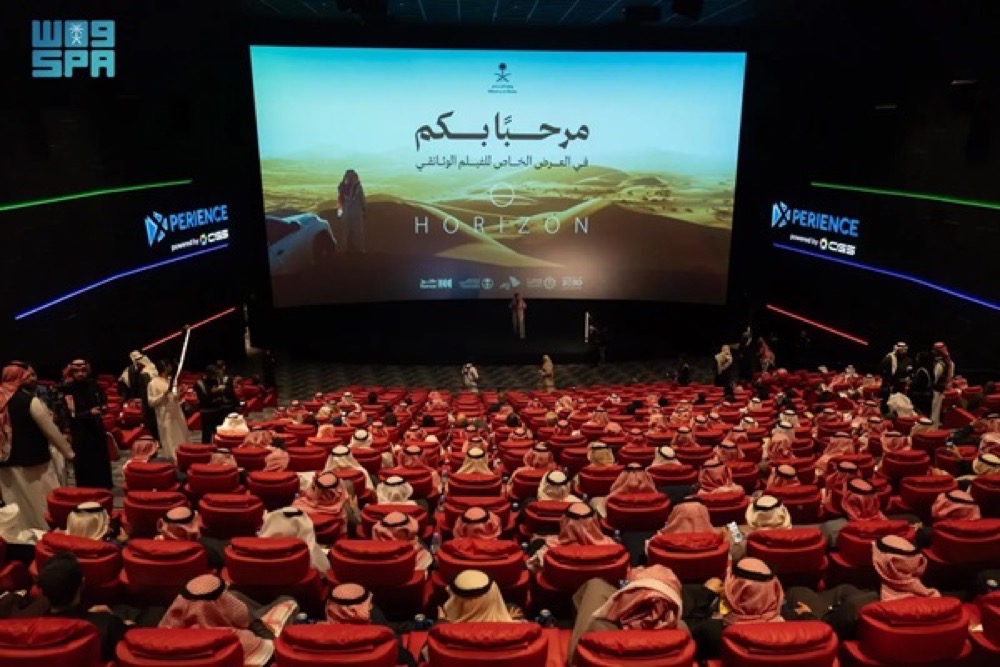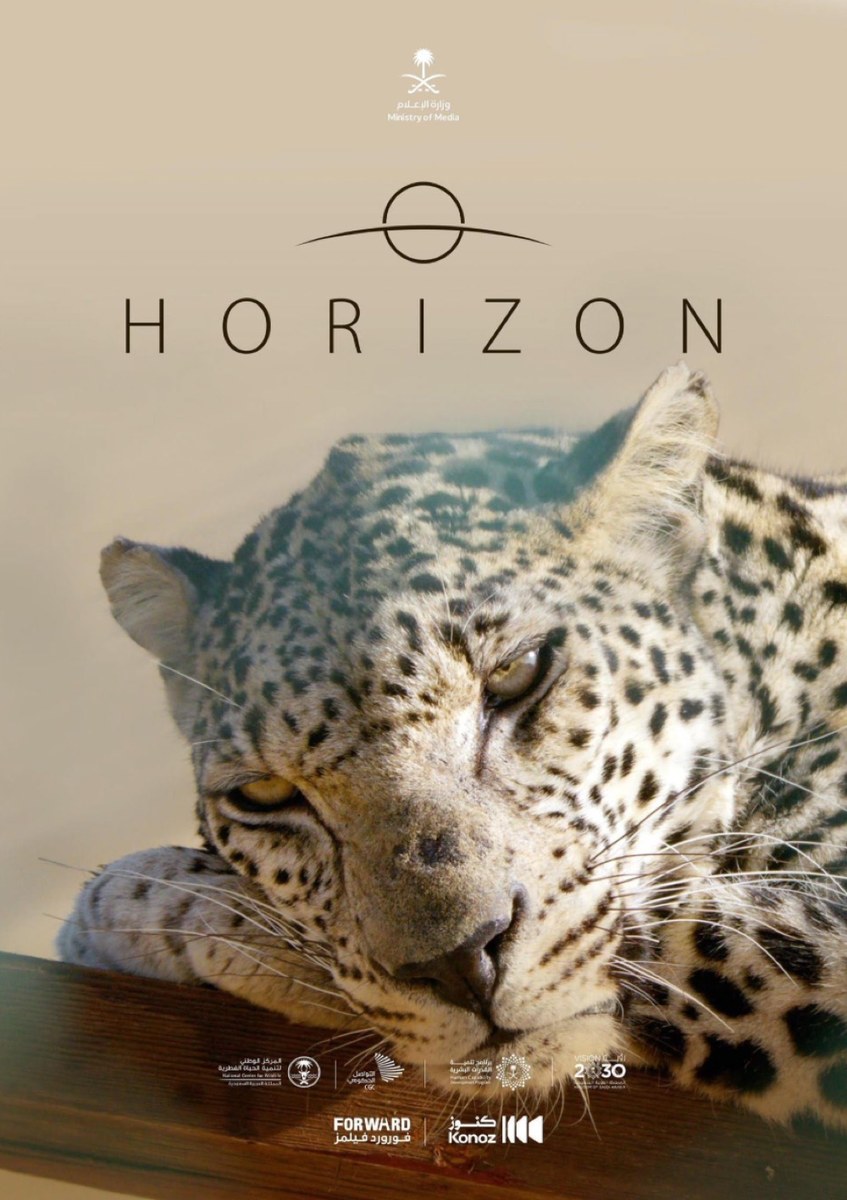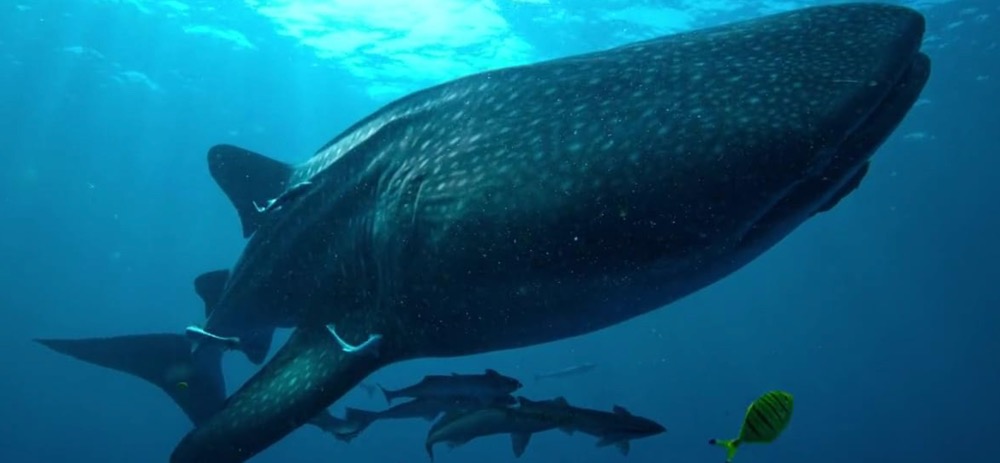RIYADH: Dazzling flamingos and mighty whale sharks are just some of the awe inspiring creatures making an appearance in “Horizon,” a new documentary produced by the Konoz Initiative, exploring Saudi Arabia’s ecological treasures and unique habitats.
The documentary, which is now available on streaming giant Netflix, is part of a collaboration between the Ministry of Media’s Center for Government Communication and the National Center for Wildlife to celebrate the rich natural diversity of the Kingdom.
Offering a captivating glimpse into Saudi Arabia’s unspoilt wilderness and protected sanctuaries, the documentary’s creators aim to raise awareness about the region’s endangered species and local efforts to rescue them from extinction.

The Konoz Initiative’s mission is to document the Kingdom’s cultural richness and to highlight the success stories of Saudi citizens by working with local companies to produce documentaries, short films, and animations.
For the making of Horizon, Konoz joined forces with some of the world’s best wildlife filmmakers, assembling a production team of 50 people, who shot segments in 28 different locations across the Kingdom.
From its vast deserts to its cool mountain forests, its colorful coral reefs to its verdant mangroves, Saudi Arabia’s diverse habitats are home to a huge variety of animals, including sea turtles, dugongs, and dolphins, ibex, oryx and the iconic Arabian leopard.
Emmy Award-winning British cinematographer Gavin Thurston, the documentary’s director of photography, is well known in the industry for his work in Human Planet (2011), the Private Life of Plants (1995), and David Attenborough: A Life on Our Planet (2020).

According to Thurston, wildlife documentaries of this kind typically take four years to produce. However, such was the level of interest, investment and talent involved in this project, the film was completed in roughly half that time.
“I suppose from the initial concept of the film through to final delivery was probably in the order of about 14 months,” he told Arab News.
Opinion
This section contains relevant reference points, placed in (Opinion field)
“So that’s incredibly quick. I know it sounds like a long time, but that’s incredibly quick for wildlife and natural history films. A very short turnaround.”
Thurston had never been to Saudi Arabia before working on the Horizon project. He said he had been blown away by the diversity of landscapes, having long thought of the Kingdom as little more than a vast open desert.
“I was quite surprised at the habitat variety,” he said.

“Of course, as a foreigner, I kind of expected a lot of sand dunes, but I was delighted to find those amazing rock sculptures and wadis and oases and palm trees and, you know, from the cold, misty tops of the mountains down in Abha, right down to the hot, dry deserts.
“Hopefully the biggest takeaway for the viewers of Horizon will be the variety that Saudi Arabia has to offer. You kind of get a stereotypical image of what it’s going to be like.
“But actually being there on the ground and seeing, for instance, the mangroves down on the southwest coast or knowing about the Red Sea, the variety of what the Red Sea has to offer like rocky canyons and wadis.”
DID YOU KNOW?
“Horizon” features more than 20 species, including the hamadryas baboon, red-necked ostrich, and fennec fox.
It was produced by an international team specialized in wildlife documentaries, with input from 13 Saudi researchers.
The National Center for Wildlife is responsible for the protection and rehabilitation of marine ecosystems.
The NCW has developed a plan to preserve marine and coastal areas in the Red Sea and the Arabian Gulf.
Thurston hopes Horizon will encourage foreign travelers to visit the Kingdom to discover the tranquility of the desert for themselves.
“I’m hoping that it will actually inspire people to want to travel to that part of the world and experience all that for themselves, particularly the hospitality, but also just that there’s something actually really nice about the emptiness of the desert.

“I live in England and we now have nearly 70 million people in a country that’s probably half the size of Saudi Arabia. So, even though we can find wild spaces out of the reach of humans, it’s more difficult than in somewhere like Saudi Arabia.
“I think those remote places are becoming fewer and further between. So I would encourage people to go and visit it and enjoy the tranquility and peace.”


































